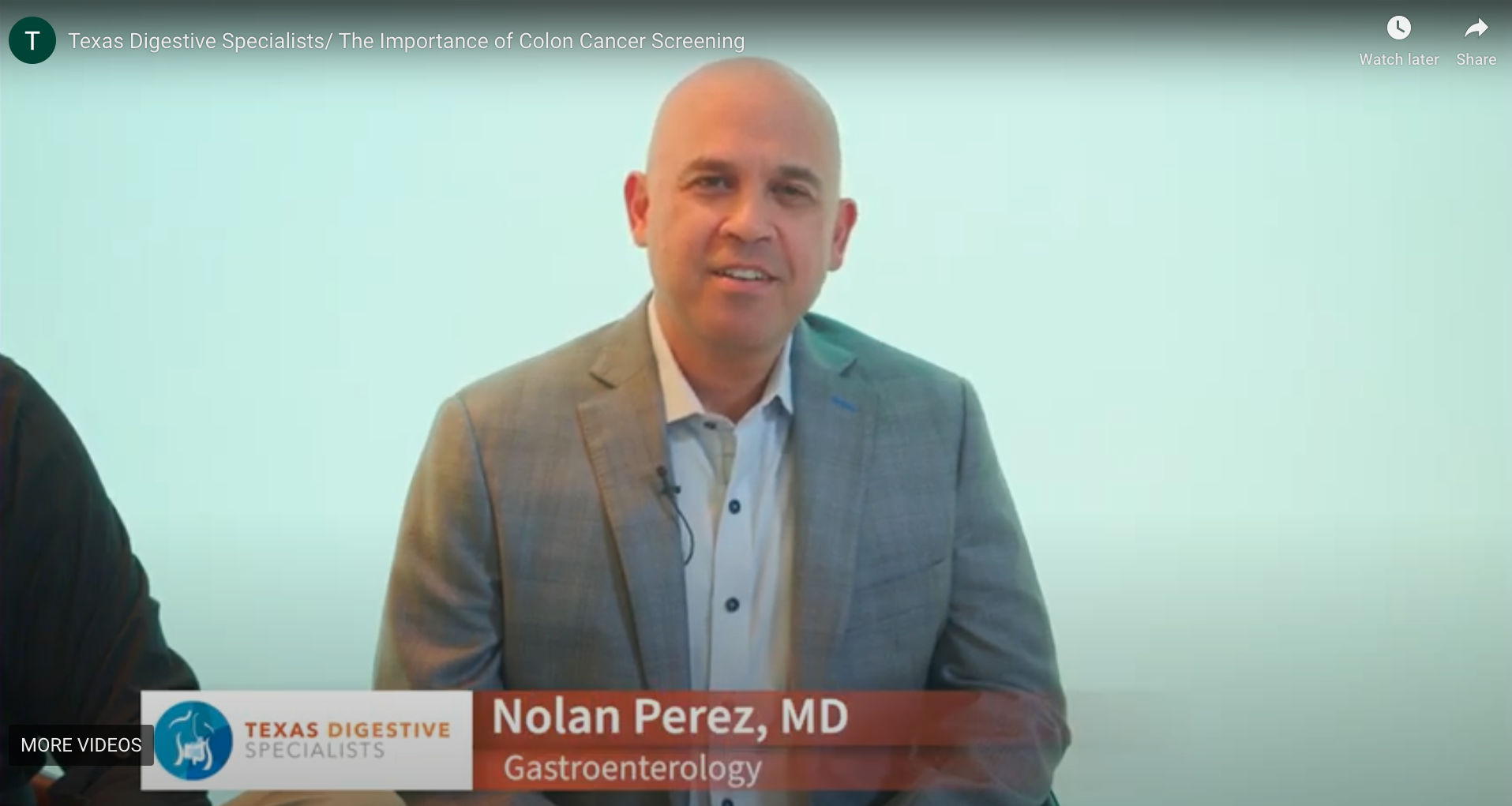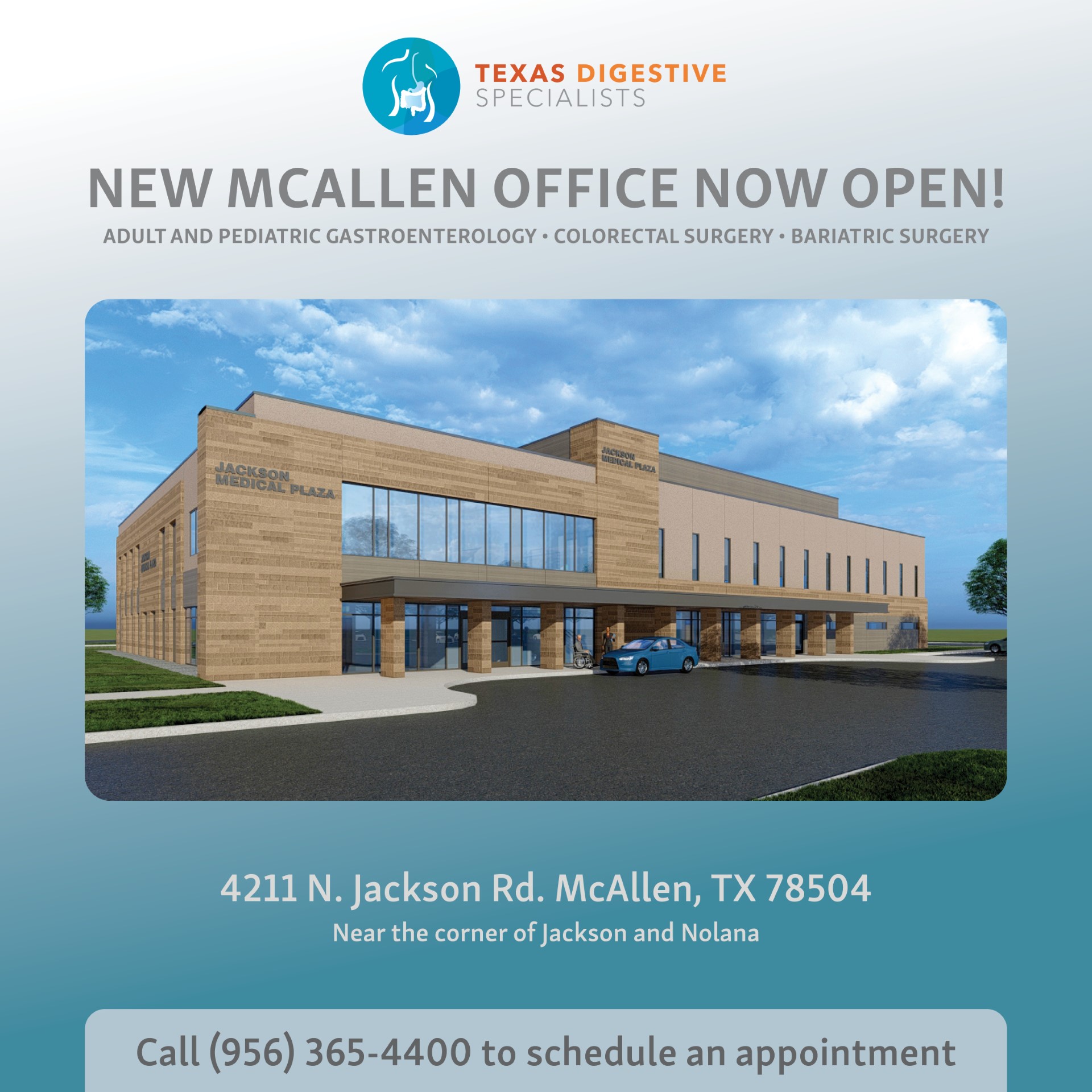Hello. I’m Doctor Nolan Perez. We’re here today with Texas Digestive Specialists with a couple of my colleagues, Dr. Juan Sanchez, and Dr. Brian Rutledge. We’re here today to talk about the importance of colon cancer screening, so we’ll get into it. So a few weeks ago, guys, there was an article about Ryan Reynolds, famous actor who who lost a bet.
And interestingly enough, the bet cost him to get a colonoscopy and during that colonoscopy, he had two precancerous polyps that were found. So that made the news. And it was kind of a cool story about the importance of getting colonoscopy done to prevent colon cancer. So tell me a little bit. I’ll start with you, Dr. Rutledge. How common is it to find polyps when you’re doing colon cancer screening?
Personally and for our group, it’s about 50% of patients. And typically what I want to tell patients is, they say they’re feeling fine, and don’t have any symptoms. I said from polyps, you don’t have symptoms, but there are precancerous lesions and you don’t want to let them grow into something that will cause symptoms and cause many problems down the line.
So Dr. Sanchez obviously when polyps are found, do we do something? Then they have come back. Tell the community what happens when we find polyps?
Well, like Dr. Rutledge said, the problem with polyps is that they are precursors a lot of times for colon cancer. I like to say that most people who have colon cancer, it started off as a polyp that just went undetected and grew and evolved. And so it’s important that they’re managed. When we find polyps, our standard practice is to remove them at that time so that they don’t have the ability to grow.
So that they don’t have the ability to evolve into a colon cancer. So we respect them in this topically with our with our instruments.
So then, Dr. Rutledge like you were saying, the alternative is to wait for symptoms and then basically you’re waiting for cancer. Right. So tell us what happens when they get cancer? What kinds of things happen to patients that get colon cancer? What treatments do they have to have.
Far as what happens to them, they typically can exhibit rectal bleeding. They can have unintentional weight loss, significant weight loss. They can have, you know, severe pain. As far as the treatments, you know, they often need surgery or they may not be candidates for surgery. They may need chemotherapy, radiation therapy. It all depends on what stage they’re found and how early it is found.
So it is always, I think, very advisable to get screened in the appropriate population.
So obviously we do find a lot of patients who get colon cancer because they get symptoms, they come in and then they have a colonoscopy and we detect cancer. And then they have to get, as you mentioned, chemotherapy, surgery, all kinds of radiation therapy, etc.. So obviously, prevention is the goal. So if prevention is the goal, what kind of test, Dr. Sanchez, are there to prevent colon cancer?
What sort of screening tests are there and what’s the best one?
I think there is a difference between a screening test and a prevention test. I think if you’re talking about colon cancer screening, you’re talking about purely detecting, diagnosing colon cancer. The two top tier studies available in this country are colonoscopy versus fit test. And colonoscopy is an endoscopic type of procedure where we use a camera to try to locate polyps and remove them for testing.
Fit testing is a different type of colon cancer screening test where you basically submit a stool card and it detects for blood in your stool. So those are the two types of colon cancer screening studies. The advantage of a colonoscopy is that it’s not only a colon cancer screening test, but it’s also a colon cancer prevention test because you find the polyps, you resect them before they have the opportunity to cause problems.
So really, it’s the only prevention test that we have.
Awesome. That’s a key point. So colonoscopy is the only colon cancer prevention test out there. So let’s talk a little bit, doctor. What folks may want to know what can I do to prevent colon cancer just in my normal, everyday life, aside from getting a colonoscopy? And that kind of gets you thinking, what are the risk factors for colon cancer?
Well, I think there’s three main risk factors to be aware of. Certainly as we age the risk of colon cancer increases. And that’s why the screening population now is age 45 and above. And certainly genetics plays a big role. I mentioned age 45, but that can change if there’s a family history of colon cancer.
It’s important to mention that to your doctor and your screening age may actually be even younger. And then I think honestly, I think diet plays a big role. You know, our Western diets seem to be causing a bit of our increase in younger people having colon cancer develop. As best as we can tell.
Well, thank you, Doctor Sanchez , Dr. Rutledge, very informative discussion today. I hope the audience out there really learned an important point today that colon cancer is preventable, but only with the colonoscopy, because that’s the only way we can find and remove parts at the same time.
Texas Digestive Specialists, the premier comprehensive digestive health group in the Rio Grande Valley.


